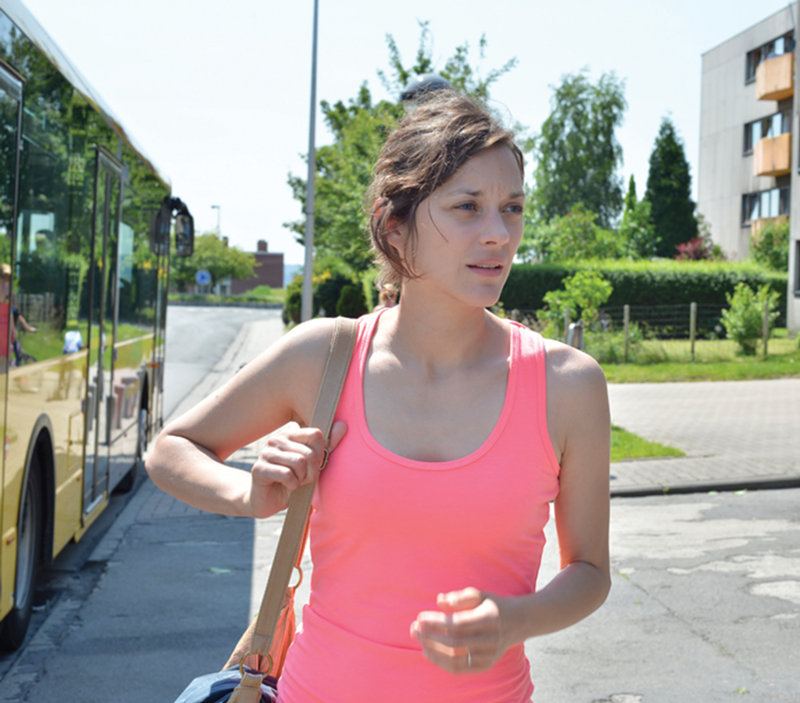Seemingly spent from months of pimping dozens of Oscar-season hopefuls, the big studios often try to hide their creatively challenged or otherwise flawed releases in the annual cinematic wasteland known as February.
Only eight studio movies are currently scheduled for release this month, none of which look particularly promising. That would include this week’s pair of fantastical thrillers, which might, in a different release context, warrant more attention: the Wachowski brothers’ Jupiter Rising, which stars Channing Tatum and Oscar frontrunner Eddie Redmayne, and Seventh Son, which features Julianne Moore and Jeff Bridges.
But it’s next week’s unveiling of Fifty Shades of Grey that is the unquestioned event of the month, which says a lot — the cinematic version of E.L. James’ best-selling phenomenon is looking more like a slick WB drama with nudity sprinkled throughout than the erotically charged curiosity it might have been.
Jamie Dornan, who plays the titular Grey, said this about the movie’s presentation of the book’s plentiful sex scenes: “You want to appeal to as wide an audience as possible without grossing them out.”
Dornan, whether wittingly or not, has confirmed that, despite the presence of James as an on-set producer, box-office viability has once again trumped all other concerns, especially those of the artistic variety.
Fear not, those searching for a more discerning option: The Dardenne brothers’ latest, the affecting, typically small-scale Two Days, One Night, opens this week.
Belgian brothers Jean-Pierre and Luc Dardenne, who write, direct and produce together, made dozens of left-leaning documentaries before moving into fiction filmmaking the late 1980s. The documentary form remains a potent influence nearly 30 years later; the brothers have dedicated themselves to telling intimate stories about the lives of ordinary, working-class people.
The duo broke through with The Promise, which won the Palme d’Or at the 1996 Cannes Film Festival, the tale of a young man who discovers his father is exploiting him along with other workers at his family’s auto-body shop.
The Promise also marked the beginning of a minimalist, Italian neorealist approach that has become the Dardennes’ signature: unobtrusive, handheld camera work; no musical score; the use of unknown actors; and long, unedited takes, among other less obvious traits. Think of them as the European flip side to those garish Americans, the Coen brothers.
“We need to push further with our rejection of aestheticism,” Luc wrote in a 1993 diary entry that was published as part of his 2005 book Au dos de nos images, 1991-2005. “One should not feel the (re)mediation of the décor, the actors, the lighting, etc. All of these elements need to be fused into one emotion, one impression of life that is raw, unadorned, which is taking place before the camera but might not have been conducted in its absence. The camera will try to follow, not wait, and will not know.”
Two Days, One Night follows in this tradition with one exception: Oscar-winning actress Marion Cotillard plays the lead role of Sandra, a Belgian wife and mother who, as the narrative opens, is on the verge of losing her job at a small manufacturing plant. The stakes are real and laid out from the get-go: Sandra must visit, over one weekend, each of her coworkers in an effort to convince them to give up their scheduled bonuses so that there is enough money to fund her position going forward.
The following interactions with her colleagues range from hostile to deeply sympathetic, each filmed with the Dardennes’ matter-of-fact aversion to formal fussiness. The filmmakers let the weight of the narrative’s central conundrum — should her coworkers give up their own financial well-being in order to save one of their own — carry the drama.
Some are beginning to grumble that the Dardennes’ need to alter their formula, their insistence on highlighting the struggles of the working-class, is bordering on the mundane. But a closer look at recent efforts The Kid with the Bike and Lorna’s Silence reveal slight variations on a theme that are just as satisfying as anything in the brothers’ filmography.
Of course, the biggest variation in Two Days, One Night is the presence of a bona fide movie star. Yet far from a distraction, a makeup-free Cotillard inhabits the role seamlessly, lending Sandra an effective mix of desperation and hope. The successful casting of a higher-profile actress might enough to encourage the brothers to expand their strict parameters — but then they wouldn’t be the Dardennes. Opens Friday at Esquire Theatre.
Grade: A-
CONTACT JASON GARGANO: [email protected]


